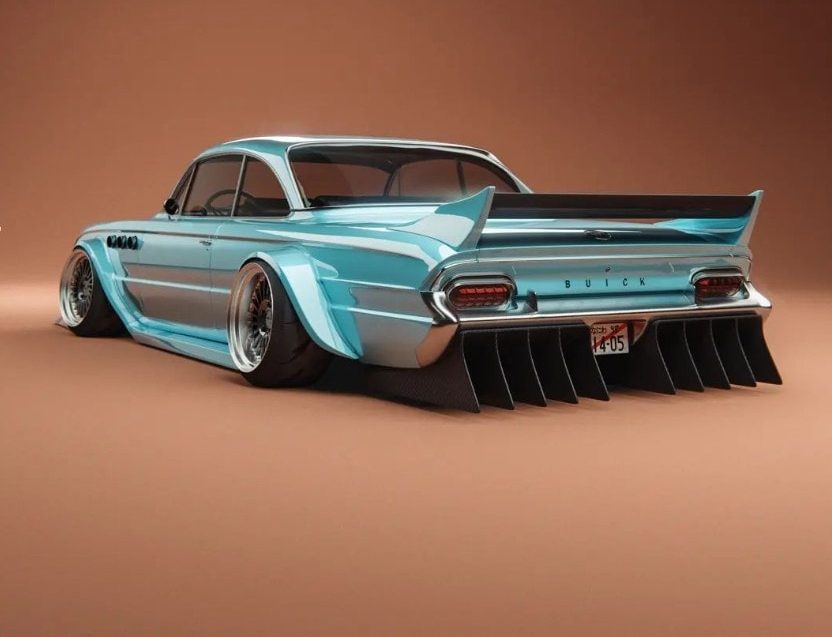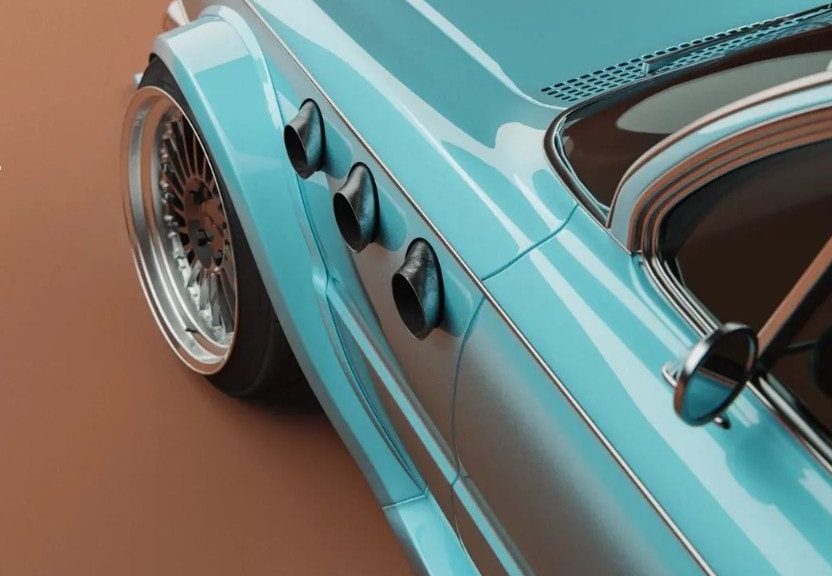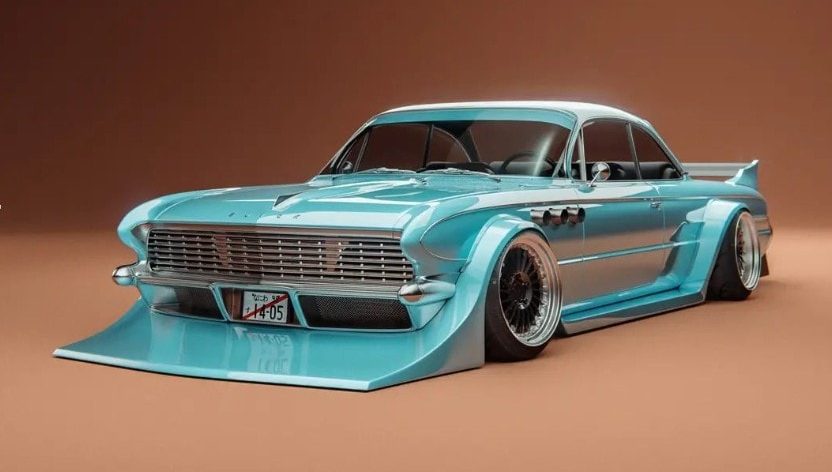Buick’s current U.S. lineup has undergone a dramatic transformation, focusing solely on crossover SUVs. This stark contrast to the brand’s heritage, once rich with sedans, coupes, and convertibles, has left a void for many automotive enthusiasts.
While Buick’s modern offerings, such as the Envista and Enclave, embody contemporary design and technology, the allure of the brand’s classic era endures. This nostalgia has found fertile ground in the digital world, where car enthusiasts and artists alike have reimagined iconic Buick models.
One such example is the work of digital artist Mike Dog, renowned for his striking “bloody renders” of classic American muscle cars. With a particular affinity for the 1960s, Dog has previously transformed iconic models like the Ford Mustang, Dodge Charger, and Chevy Camaro into futuristic yet retro-inspired masterpieces.

However, his latest project marks a departure from this trend. Instead of focusing on the latter half of the decade, Dog has turned his attention to an earlier era, selecting a Buick as the canvas for his creative vision.
The result is a stunning LeSabre restomod that pays homage to the brand’s heritage while embracing modern design elements. The Buick LeSabre, a name evoking the French sword, debuted in 1959 as a full-sized offering positioned between the Special and Electra.
Unexpectedly, it outshone both, becoming Buick’s flagship full-size model. Produced until 2005, it transitioned from rear-wheel to front-wheel drive in 1985. Offered in a range of body styles, from elegant convertibles to practical station wagons, the LeSabre spanned eight generations.

The 1961 model, a subject of recent digital restoration, marked a stylistic departure from its predecessor, signaling Buick’s resurgence. This era epitomized a bygone time when driving was an adventure, a stark contrast to today’s often mundane commutes.
The 1961 LeSabre, in particular, captured the essence of this golden age. Its design, a harmonious blend of curves and chrome, exemplified the automotive artistry of the period. A time when cars were more than mere transportation; they were symbols of status, style, and the open road.

